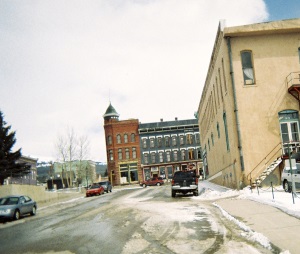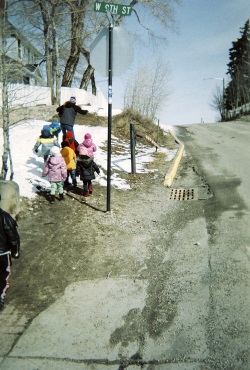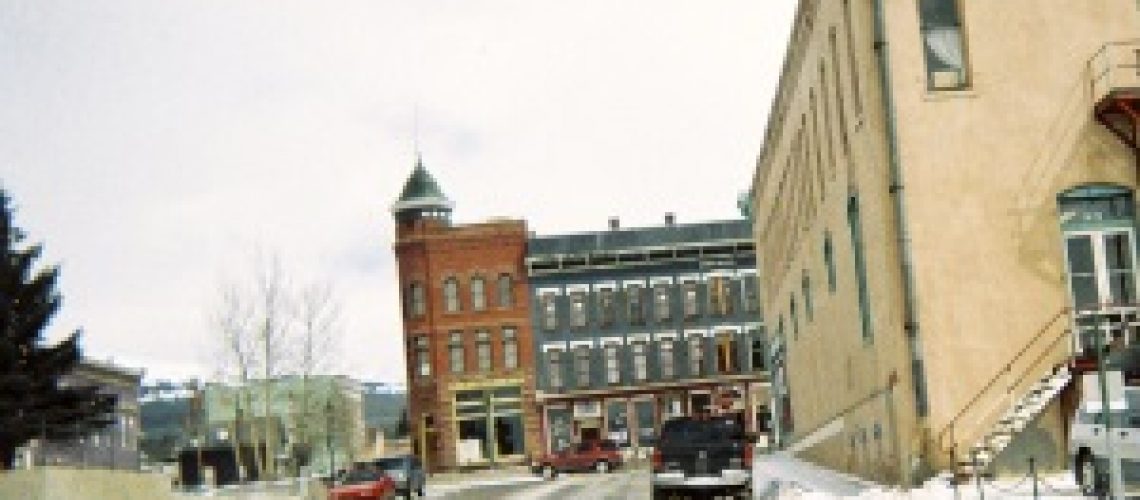Lessons from Lake County: Mobilizing Local Communities for Statewide Change
 Lake County Build a Generation (LCBAG) is a coalition of residents from Leadville and the surrounding communities that works at the intersection of community organizing, prevention, and community-level change to build a healthier community for youth and families. Much of the organization’s energy goes into building community champions, and their constituent-led action teams focus on issues like safe routes to school and food access. But this spring, staff from the small-nonprofit found themselves working towards an unusual goal.
Lake County Build a Generation (LCBAG) is a coalition of residents from Leadville and the surrounding communities that works at the intersection of community organizing, prevention, and community-level change to build a healthier community for youth and families. Much of the organization’s energy goes into building community champions, and their constituent-led action teams focus on issues like safe routes to school and food access. But this spring, staff from the small-nonprofit found themselves working towards an unusual goal.
In a legislative session dominated by a massive budget shortfall and an equally massive transportation funding debate, Sen. John Kefalas’ Senate Bill 17-098 was a relatively small affair. The bill allowed residents of mobile home parks to organize as HOAs and provided mobile home park owners interested in selling their property with tax incentives to sell directly to the resident-owned HOAs. It also allowed residents and park owners to settle disagreements outside of traditional court settings.
At first glance, a local non-profit focused on healthy eating and active living pursuing statewide legislative change on a bill about HOAs and mobile home parks may seem like an odd choice, and yet, “When we got an email from Sen. Kefalas’ office asking us to take a look, we jumped at the chance,” says the group’s Director, Katie Baldassar.
“We work very closely with our local school district,” explained Baldassar, “and when we looked at the addresses of the students going to school in Leadville, we found that 45% of them lived in the three mobile home parks outside the city. When we saw that, we knew that our HEAL efforts wouldn’t work unless these communities were engaged.”
Build a Generation then set out on a community organizing program to bring the perspectives of their outlying mobile home communities into the fold. Cesar Hernandez, a resident of Lake County’s mobile home parks, led the effort. “We started out at our first meeting a year ago with just 5 people in the room,” recalled Hernandez, “at our most recent meeting, we had 26.”
The nascent effort has seen several successes. Baldassar recalled a particularly bad storm that left the roads in one mobile home park unusable for weeks. “The school busses couldn’t get into the park to pick up kids,” she elaborated, “so they resorted to stopping on the highway and picking up kids there, which wasn’t safe and really upset the parents.” LCBAG succeeded in convincing the school district’s superintendent to visit the park and see the situation for herself. In turn, the superintendent brought the fire chief and other community leaders to the park after seeing the situation. “We worked with the park owner, the school district and others to set-up a parent-led program to monitor the bus stop and make it a safer experience.”
 There are 5 mobile home parks in the Leadville area. Three of those mobile home parks are well-outside the city’s limits and each of them faced unique challenges. But the more Hernandez spoke with residents, he came across a consistent theme, “It was very slow work. People were afraid of speaking up against the park owners; some weren’t legal residents and didn’t know what rights they had to speak up about issues they were seeing. They worried about what would happen.”
There are 5 mobile home parks in the Leadville area. Three of those mobile home parks are well-outside the city’s limits and each of them faced unique challenges. But the more Hernandez spoke with residents, he came across a consistent theme, “It was very slow work. People were afraid of speaking up against the park owners; some weren’t legal residents and didn’t know what rights they had to speak up about issues they were seeing. They worried about what would happen.”
“We wanted to see a bill that more explicitly stated what rights people had,” says Baldassar, with her colleague adding, “We can’t do everything at once, we wanted to see the right to association, to organize, spelled out more clearly.” But this was a good first step, they concluded, “It showed us we weren’t alone in having these problems, there were other people out there working for our rights.”
The bill died in partisan committee vote, but LCBAG plans to continue engaging their communities and working with legislators in Denver on the bill if it is reintroduced. “We want to work in association with other groups, we can learn more and do more working together,” Hernandez concluded, noting the importance for standing up for tenants’ rights, “I don’t know why the law can’t protect these people. The owners are very protected, but many residents feel they cannot do anything.”

